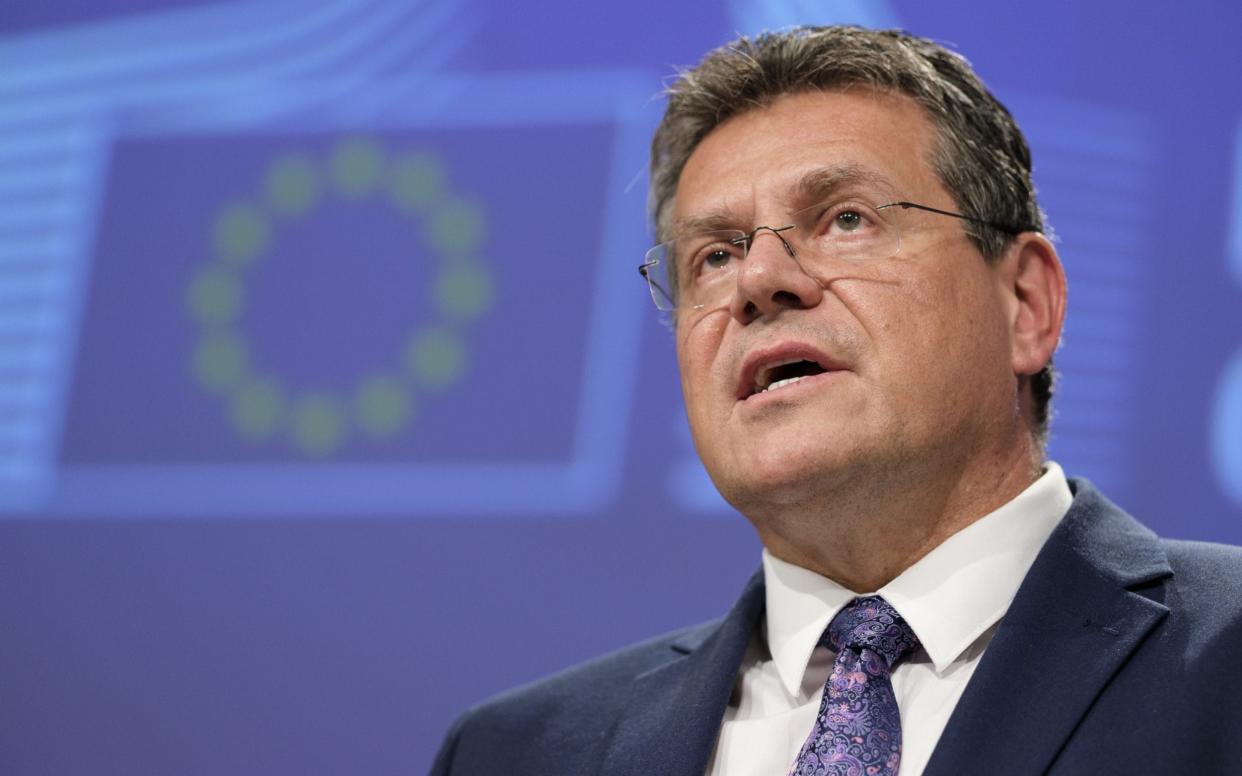EU finally accepts there will be no extension to Brexit transition period

There will not be an extension to the Brexit transition period, the European Commission said on Friday, before warning Britain it must now get ready to police the border in the Irish Sea.
Michael Gove told Maros Sefcovic, a commission vice-president, that Britain would not ask for a delay to the period beyond the end of the year in a meeting of the joint committee on the implementation of the Withdrawal Agreement.
The Chancellor of the Duchy of Lancaster "couldn't be clearer" in his formal notice to the commission, Mr Sefcovic told reporters in Brussels, "he explained this was the promise that was given to the British citizens in the electoral campaign".
"[He] was very clear, unequivocal on the fact that the UK is not going to seek the extension and because this was the last joint committee before the deadline expires we take this decision as a definitive one," said Mr Sefcovic. "Therefore, we are pleading for acceleration of work on all fronts."
“We have informed the EU [on Friday] that we will not extend the Transition Period. The moment for extension has now passed,” Mr Gove said.
The EU has always said it is open to negotiating an extension, especially because of the impact of coronavirus on the already tight deadline, despite Downing Street's repeated vow it would never ask for a delay.
"We must now progress on substance," tweeted Michel Barnier as it was confirmed the end of June deadline for extension would expire without a request.
The UK and EU agreed a programme of intensified negotiations in July before Monday's meeting of Boris Johnson and three presidents of the major EU institutions.
Failure to strike a trade deal by the end of the year will mean the UK and EU trading on less lucrative WTO terms and with tariffs on goods, which experts warn will compound the economic damage caused by the coronavirus pandemic.
Mr Sefcovic demanded more details from the UK Government over how it planned to enforce the new customs arrangements in Northern Ireland after the end of the transition period at the end of the year. A UK command paper was long on aspiration but short on detail, he said.
The Government is backtracking on its plans to introduce full border controls on EU imports to the UK because the new controls will not be ready by the end of the year. It will instead introduce a staged light touch regime which gradually increases controls over time, which it claims to give businesses hit by coronavirus more time to prepare.
"The UK has stated on several occasions it wants to take back control and I would say that it is up to the UK how they do it," Mr Sefcovic said when he was asked how the EU could trust the UK to enforce its customs rules when it could not its own.
"As of January 1, 2021, the UK will have to meet all the requirements of the [Northern Ireland] protocol rigorously and effectively,” he said.
That meant all checks and controls on goods entering Northern Ireland from Great Britain had to be in place to ensure they meet EU standards, including on animal health and food safety.
Mr Sefcovic said the UK had to "facilitate" the presence of EU officials to check how the system was working. The border in the Irish Sea replaced the hated backstop plan in the Withdrawal Agreement and paved the way for Brexit. It prevents a hard border on the island of Ireland.
Britain has refused an EU request to set up a permanent Northern Irish office to scrutinise the system. It has called for a limit of three pre-approved checks a year, sources in Brussels said.
"Only a sound and effective implementation of all these legal obligations can ensure continued peace and stability between all communities on the island of Ireland, uphold the Good Friday Belfast agreement in all its dimensions, while also preserving the EU Single Market," Mr Sefcovic said.

